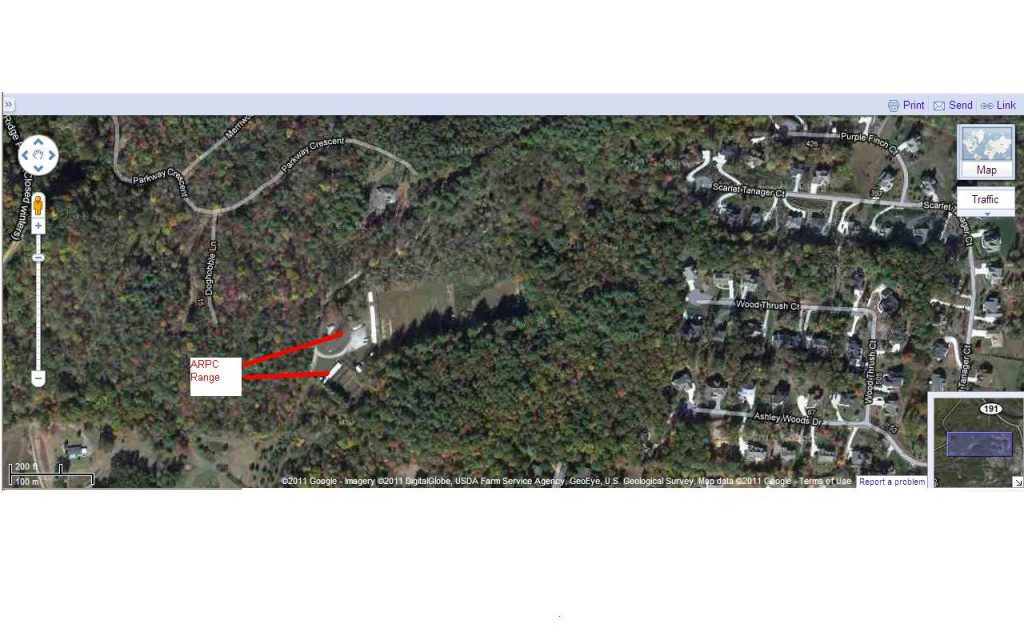Rep. Peter King (R-NY-3) introduced HR 1506 yesterday. It is titled a bill to “To increase public safety by permitting the Attorney General to deny the transfer of a firearm or the issuance of firearms or explosives licenses to a known or suspected dangerous terrorist.”
I am guessing – and it is only a guess – that this bill is the House version of Sen. Frank Lautenberg’s S 34 – Denying Firearms and Explosives to Dangerous Terrorists Act of 2011. The language of King’s bill is not yet available. However, the purpose of the Lautenberg bill is exactly the same as the preliminary title of HR 1506, so I think it is fair presumption.
The 11 co-sponsors are your usual cast of anti-gunners along with one NRA C-ranked Country Club Republican (Lance) thrown into the mix.
Rep Ackerman, Gary L. [NY-5]
Rep Chu, Judy [CA-32]
Rep Deutch, Theodore E. [FL-19]
Rep Doyle, Michael F. [PA-14]
Rep Engel, Eliot L. [NY-17]
Rep Holt, Rush D. [NJ-12]
Rep Lance, Leonard [NJ-7]
Rep Norton, Eleanor Holmes [DC]
Rep Rangel, Charles B. [NY-15]
Rep Rush, Bobby L. [IL-1]
Rep Waxman, Henry A. [CA-30]
While the bill has been referred to the House Judiciary Committee, it will probably get more attention than it deserves because King is the Chairman of the House Homeland Security Committee. The bill should be consigned to the dustbin of history but it probably will get some traction thanks to King’s sponsorship of it.
Republican or not, Peter King is no friend of gun owners and made plenty of stupid remarks in the aftermath of the Tucson shootings. His HR 496 would create a 1000 foot “gun-free bubble” around “high-ranking government officials” which, of course, includes Congressmen. If he were a Republican from the Mid-West, the South, or even California, I doubt he could get away with some of the stuff he has said. However, he represents a Long Island district that adjoins the district of Carolyn McCarthy and stupidly confuses gun control with anti-terrorism measures.
UPDATE: The bill now has 14 co-sponsors and the text has been released. The text of HR 1506 is not word for word the same as Sen. Frank Lautenberg’s S. 34 but it is pretty damn close.
In essence, you can be accused of international or domestic terrorism by some unknown accuser and then be turned down for a firearms purchase. If the Attorney General deems it in the interest of “national security”, then he doesn’t need to even tell you why you were denied and you are prohibited from suing to seek answers. This law would strip you of your right to due process.
Here is the text of the bill as reported by the Government Printing Office.
A BILL
To increase public safety by permitting the Attorney General to deny the transfer of a firearm or the issuance of firearms or explosives licenses to a known or suspected dangerous terrorist.
Be it enacted by the Senate and House of Representatives of the United States of America in Congress assembled,
SECTION 1. SHORT TITLE.
This Act may be cited as the `Denying Firearms and Explosives to Dangerous Terrorists Act of 2011′.
SEC. 2. GRANTING THE ATTORNEY GENERAL THE AUTHORITY TO DENY THE SALE, DELIVERY, OR TRANSFER OF A FIREARM OR THE ISSUANCE OF A FIREARMS OR EXPLOSIVES LICENSE OR PERMIT TO DANGEROUS TERRORISTS.
(a) Standard for Exercising Attorney General Discretion Regarding Transferring Firearms or Issuing Firearms Permits to Dangerous Terrorists- Chapter 44 of title 18, United States Code, is amended–
(1) by inserting the following new section after section 922:
`Sec. 922A. Attorney General’s discretion to deny transfer of a firearm
`The Attorney General may deny the transfer of a firearm pursuant to section 922(t)(1)(B)(ii) if the Attorney General determines that the transferee is known (or appropriately suspected) to be or have been engaged in conduct constituting, in preparation for, in aid of, or related to terrorism, or providing material support thereof, and the Attorney General has a reasonable belief that the prospective transferee may use a firearm in connection with terrorism.’;
(2) by inserting the following new section after section 922A:
`Sec. 922B. Attorney General’s discretion regarding applicants for firearm permits which would qualify for the exemption provided under section 922(t)(3)
`The Attorney General may determine that an applicant for a firearm permit which would qualify for an exemption under section 922(t) is known (or appropriately suspected) to be or have been engaged in conduct constituting, in preparation for, in aid of, or related to terrorism, or providing material support thereof, and the Attorney General has a reasonable belief that the applicant may use a firearm in connection with terrorism.’; and
(3) in section 921(a), by adding at the end the following:
`(36) The term `terrorism’ means `international terrorism’ as defined in section 2331(1), and `domestic terrorism’ as defined in section 2331(5).
`(37) The term `material support’ means `material support or resources’ within the meaning of section 2339A or 2339B.
`(38) The term `responsible person’ means an individual who has the power, directly or indirectly, to direct or cause the direction of the management and policies of the applicant or licensee pertaining to firearms.’.
(b) Effect of Attorney General Discretionary Denial Through the National Instant Criminal Background Check System (NICS) on Firearms Permits- Section 922(t) of such title is amended–
(1) in paragraph (1)(B)(ii), by inserting `or State law, or that the Attorney General has determined to deny the transfer of a firearm pursuant to section 922A’ before the semicolon;
(2) in paragraph (2), by inserting after `or State law’ the following: `or if the Attorney General has not determined to deny the transfer of a firearm pursuant to section 922A’;
(3) in paragraph (3)(A)(i)–
(A) by striking `and’ at the end of subclause (I); and
(B) by adding at the end the following:
`(III) was issued after a check of the system established pursuant to paragraph (1);’;
(4) in paragraph (3)(A)–
(A) by adding `and’ at the end of clause (ii); and
(B) by adding after and below the end the following:
`(iii) the State issuing the permit agrees to deny the permit application if such other person is the subject of a determination by the Attorney General pursuant to section 922B;’;
(5) in paragraph (4), by inserting after `or State law,’ the following: `or if the Attorney General has not determined to deny the transfer of a firearm pursuant to section 922A,’; and
(6) in paragraph (5), by inserting after `or State law,’ the following: `or if the Attorney General has determined to deny the transfer of a firearm pursuant to section 922A,’.
(c) Unlawful Sale or Disposition of Firearm Based on Attorney General Discretionary Denial- Section 922(d) of such title is amended–
(1) by striking `or’ at the end of paragraph (8);
(2) by striking the period at the end of paragraph (9) and inserting `; or’;
(3) by inserting after paragraph (9) the following:
`(10) has been the subject of a determination by the Attorney General pursuant to section 922A, 922B, 923(d)(1)(H), or 923(e) of this title.’.
(d) Attorney General Discretionary Denial as Prohibitor- Section 922(g) of such title is amended–
(1) by striking `or’ at the end of paragraph (8);
(2) by striking the comma at the end of paragraph (9) and inserting; `; or’; and
(3) by inserting after paragraph (9) the following:
`(10) who has received actual notice of the Attorney General’s determination made pursuant to section 922A, 922B, 923(d)(1)(H), or 923(e) of this title.’.
(e) Attorney General Discretionary Denial of Federal Firearms Licenses- Section 923(d)(1) of such title is amended–
(1) by striking `Any’ and inserting `Except as provided in subparagraph (H), any’;
(2) in subparagraph (F)(iii), by striking `and’ at the end;
(3) in subparagraph (G), by striking the period and inserting `; and’; and
(4) by adding at the end the following:
`(H) The Attorney General may deny a license application if the Attorney General determines that the applicant (including any responsible person) is known (or appropriately suspected) to be or have been engaged in conduct constituting, in preparation for, in aid of, or related to terrorism, or providing material support thereof, and the Attorney General has a reasonable belief that the applicant may use a firearm in connection with terrorism.’.
(f) Discretionary Revocation of Federal Firearms Licenses- Section 923(e) of such title is amended–
(1) in the 1st sentence–
(A) by inserting after `revoke’ the following: `–(1)’; and
(B) by striking the period and inserting a semicolon;
(2) in the 2nd sentence–
(A) by striking `The Attorney General may, after notice and opportunity for hearing, revoke’ and insert `(2)’; and
(B) by striking the period and inserting `; or’; and
(3) by adding at the end the following:
`(3) any license issued under this section if the Attorney General determines that the holder of the license (including any responsible person) is known (or appropriately suspected) to be or have been engaged in conduct constituting, in preparation for, in aid of, or related to terrorism, or providing material support thereof, and the Attorney General has a reasonable belief that the applicant may use a firearm in connection with terrorism.’.
(g) Attorney General’s Ability To Withhold Information in Firearms License Denial and Revocation Suit- Section 923(f) of such title is amended–
(1) in the 1st sentence of paragraph (1), by inserting `, except that if the denial or revocation is pursuant to subsection (d)(1)(H) or (e)(3), then any information on which the Attorney General relied for this determination may be withheld from the petitioner if the Attorney General determines that disclosure of the information would likely compromise national security’ before the period; and
(2) in paragraph (3), by inserting after the 3rd sentence the following: `With respect to any information withheld from the aggrieved party under paragraph (1), the United States may submit, and the court may rely on, summaries or redacted versions of documents containing information the disclosure of which the Attorney General has determined would likely compromise national security.’.
(h) Attorney General’s Ability To Withhold Information in Relief From Disabilities Lawsuits- Section 925(c) of such title is amended by inserting after the 3rd sentence the following: `If receipt of a firearms by the person would violate section 922(g)(10), any information which the Attorney General relied on for this determination may be withheld from the applicant if the Attorney General determines that disclosure of the information would likely compromise national security. In responding to the petition, the United States may submit, and the court may rely on, summaries or redacted versions of documents containing information the disclosure of which the Attorney General has determined would likely compromise national security.’.
(i) Penalties- Section 924(k) of such title is amended–
(1) by striking `or’ at the end of paragraph (2);
(2) in paragraph (3), by striking `, or’ and inserting `; or’; and
(3) by inserting after paragraph (3) the following:
`(4) constitutes an act of terrorism (as defined in section 921(a)(36)), or material support thereof (as defined in section 921(a)(37)), or’.
(j) Remedy for Erroneous Denial of Firearm or Firearm Permit Exemption- Section 925A of such title is amended–
(1) in the section heading, by striking `Remedy for erroneous denial of firearm’ and inserting `Remedies’;
(2) by striking `Any person denied a firearm pursuant to subsection (s) or (t) of section 922′ and inserting the following:
`(a) Except as provided in subsection (b), any person denied a firearm pursuant to section 922(t) or pursuant to a determination made under section 922B,’; and
(3) by adding after and below the end the following:
`(b) In any case in which the Attorney General has denied the transfer of a firearm to a prospective transferee pursuant to section 922A or has made a determination regarding a firearm permit applicant pursuant to section 922B, an action challenging the determination may be brought against the United States. The petition must be filed not later than 60 days after the petitioner has received actual notice of the Attorney General’s determination made pursuant to section 922A or 922B. The court shall sustain the Attorney General’s determination on a showing by the United States by a preponderance of evidence that the Attorney General’s determination satisfied the requirements of section 922A or 922B. To make this showing, the United States may submit, and the court may rely on, summaries or redacted versions of documents containing information the disclosure of which the Attorney General has determined would likely compromise national security. On request of the petitioner or the court’s own motion, the court may review the full, undisclosed documents ex parte and in camera. The court shall determine whether the summaries or redacted versions, as the case may be, are fair and accurate representations of the underlying documents. The court shall not consider the full, undisclosed documents in deciding whether the Attorney General’s determination satisfies the requirements of section 922A or 922B.’.
(k) Provision of Grounds Underlying Ineligibility Determination by the National Instant Criminal Background Check System- Section 103 of the Brady Handgun Violence Prevention Act (Public Law 103-159) is amended–
(1) in subsection (f)–
(A) by inserting after `is ineligible to receive a firearm,’ the following: `or the Attorney General has made a determination regarding an applicant for a firearm permit pursuant to section 922B of title 18, United States Code’; and
(B) by inserting after `the system shall provide such reasons to the individual,’ the following: `except for any information the disclosure of which the Attorney General has determined would likely compromise national security’; and
(2) in subsection (g)–
(A) in the 1st sentence, by inserting after `subsection (g) or (n) of section 922 of title 18, United States Code or State law’ the following: `or if the Attorney General has made a determination pursuant to section 922A or 922B of such title,’;
(B) by inserting `, except any information the disclosure of which the Attorney General has determined would likely compromise national security’ before the period; and
(C) by adding at the end the following: `Any petition for review of information withheld by the Attorney General under this subsection shall be made in accordance with section 925A of title 18, United States Code.’.
(l) Unlawful Distribution of Explosives Based on Attorney General Discretionary Denial- Section 842(d) of such title is amended–
(1) by striking the period at the end of paragraph (9) and inserting `; or’; and
(2) by adding at the end the following:
`(10) has received actual notice of the Attorney General’s determination made pursuant to section 843(b)(8) or (d)(2) of this title.’.
(m) Attorney General Discretionary Denial as Prohibitor- Section 842(i) of such title is amended–
(1) by adding `or’ at the end of paragraph (7); and
(2) by inserting after paragraph (7) the following:
`(8) who has received actual notice of the Attorney General’s determination made pursuant to section 843(b)(8) or (d)(2),’.
(n) Attorney General Discretionary Denial of Federal Explosives Licenses and Permits- Section 843(b) of such title is amended–
(1) by striking `Upon’ and inserting the following: `Except as provided in paragraph (8), on’; and
(2) by inserting after paragraph (7) the following:
`(8) The Attorney General may deny the issuance of a permit or license to an applicant if the Attorney General determines that the applicant or a responsible person or employee possessor thereof is known (or appropriately suspected) to be or have been engaged in conduct constituting, in preparation of, in aid of, or related to terrorism, or providing material support thereof, and the Attorney General has a reasonable belief that the person may use explosives in connection with terrorism.’.
(o) Attorney General Discretionary Revocation of Federal Explosives Licenses and Permits- Section 843(d) of such title is amended–
(1) by inserting `(1)’ in the first sentence after `if’; and
(2) by striking the period at the end of the first sentence and inserting the following: `; or (2) the Attorney General determines that the licensee or holder (or any responsible person or employee possessor thereof) is known (or appropriately suspected) to be or have been engaged in conduct constituting, in preparation for, in aid of, or related to terrorism, or providing material support thereof, and that the Attorney General has a reasonable belief that the person may use explosives in connection with terrorism.’.
(p) Attorney General’s Ability To Withhold Information in Explosives License and Permit Denial and Revocation Suits- Section 843(e) of such title is amended–
(1) in the 1st sentence of paragraph (1), by inserting `except that if the denial or revocation is based on a determination under subsection (b)(8) or (d)(2), then any information which the Attorney General relied on for the determination may be withheld from the petitioner if the Attorney General determines that disclosure of the information would likely compromise national security’ before the period; and
(2) in paragraph (2), by adding at the end the following: `In responding to any petition for review of a denial or revocation based on a determination under section 843(b)(8) or (d)(2), the United States may submit, and the court may rely on, summaries or redacted versions of documents containing information the disclosure of which the Attorney General has determined would likely compromise national security.’.
(q) Ability To Withhold Information in Communications to Employers- Section 843(h)(2) of such title is amended–
(1) in subparagraph (A), by inserting `or section 843(b)(1) (on grounds of terrorism) of this title,’ after `section 842(i),’; and
(2) in subparagraph (B)–
(A) by inserting `or section 843(b)(8)’ after `section 842(i)’; and
(B) in clause (ii), by inserting `, except that any information that the Attorney General relied on for a determination pursuant to section 843(b)(8) may be withheld if the Attorney General concludes that disclosure of the information would likely compromise national security’ before the semicolon.
(r) Conforming Amendment to Immigration and Nationality Act- Section 101(a)(43)(E)(ii) of the Immigration and Nationality Act (8 U.S.C. 1101(a)(43)(E)(ii)) is amended by striking ` or (5)’ and inserting `(5), or (10)’.



